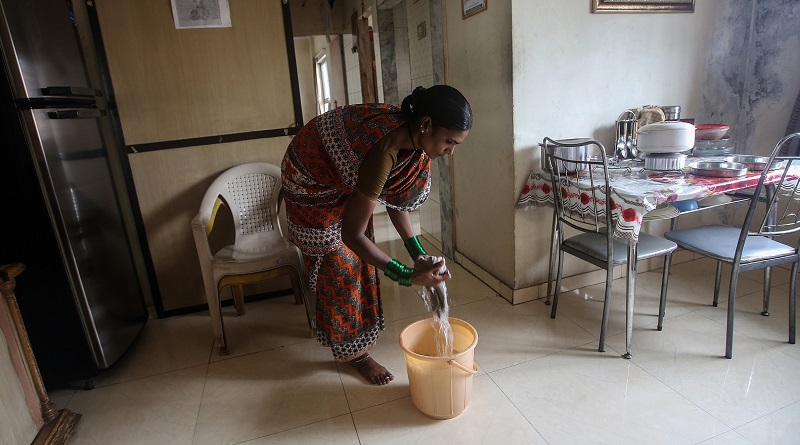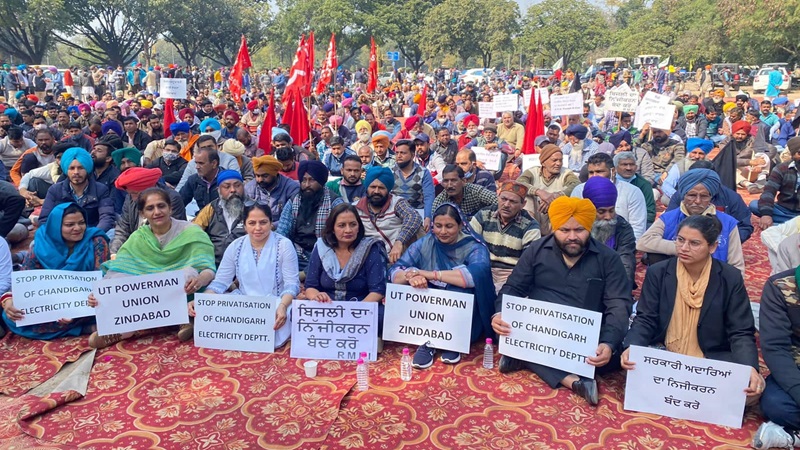Unionisation can provide safe space for women domestic workers to raise sexual harassment complains

In their new research on women domestic workers in India, IIM Ahmedabad researchers Akshaya Vijayalakshmi, Pritha Dev and Vaibhavi Kulkarni found that women domestic workers are extremely hesitant to report crimes of sexual harassment in their workplace.
The researchers attribute this hesitation to the lack of any societal or institutional support systems, which the women who are engaged in domestic work can trust or rely on.
In the course of the study, the researchers interviewed and surveyed over 300 women domestic workers from different cities in India.
Women hesitate to speak up
During their interviews, they found that the issue of sexual harassment was a tabooed topic, and women were generally reluctant to speak about their own experiences of sexual harassment while carrying out domestic work. However, they did agree that sexual harassment was indeed prevalent in their social and work settings. The economic vulnerability of domestic workers either forced them to not report sexual harassment at their workplace, or made them quit in situations where the harassment was quite severe.
- वायरल वीडियो में घरेलू कामगार ने बताई आप बीती, कैसे होता था उसके साथ टॉर्चर
- स्पेन में घरेलू कामगारों को अन्य वर्करों जैसी सुविधा देने का बना कानून, 3.7 लाख लोग होंगे लाभान्वित
The research finds that for most women domestic workers, coping with sexual harassment at the workplace is a burden that they must bear alone. When it comes to complaining about sexual harassment, women do not trust their own families, the police, or even their female employers.
They also do not trust the existing legal mechanisms, and in the case of sexual harassment, rather than taking a legal recourse, they prefer to change jobs. The only case in which women openly complain of sexual harassment is when they can provide evidence in the form of phone messages or phone calls.
Unions can be a potential source of support
The researchers suggest that unionisation among domestic workers can be an effective solution for this problem. A domestic workers’ unions can be a trustable source of support for the women. Prior research suggests that women are more comfortable discussing their sexual harassment instances with a union rather than with their employers or supervisors.
- भारत में मुस्लिम घरेलू कामगारों को काम पाने के लिए बदलना पड़ता है नामः रिपोर्ट
- बैंगलोर के घरेलू कामगारों का वेतन डेढ़ गुना बढ़ाया जाए: लेबर डिपार्टमेंट का सुझाव
While most women domestic workers find it challenging to form and participate in unions, there are few successful models of unionisation among women domestic workers such as the Self Employed Women’s Association (SEWA).
The original study is titled “Domestic workers and sexual harassment in India: Examining preferred response strategies”. Funded by National Human Rights Commission, and it is published in the July 2022 issue of the World Development journal. A brief summary of research findings is available in the form of a blog post by the authors.
(written by workersunity team)
वर्कर्स यूनिटी को सपोर्ट करने के लिए सब्स्क्रिप्शन ज़रूर लें- यहां क्लिक करें
(वर्कर्स यूनिटी के फ़ेसबुक, ट्विटर और यूट्यूब को फॉलो कर सकते हैं। टेलीग्राम चैनल को सब्सक्राइब करने के लिए यहां क्लिक करें। मोबाइल पर सीधे और आसानी से पढ़ने के लिए ऐप डाउनलोड करें।)



